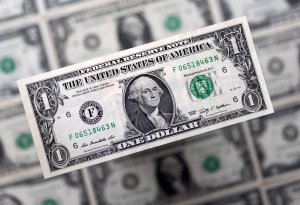European shares lost ground on Wednesday, mirroring a drop in Asian stock markets, as investors cautiously awaited U.S. inflation data that is expected to put the Federal Reserve on course to cut rates again, with the dollar holding near a two-week high. European shares (.STOXX), opens new tab fell 0.2%, easing further away from a seven-week high touched on Monday, weighed down by a series of downbeat corporate results.
Investors were cautious because - with an 85% chance of a U.S. rate cut next week priced in and with Wall Street indexes around record highs - potential for disappointment exists. The median forecast of economists polled by Reuters is for headline and core U.S. consumer prices increasing 0.3% month on month for November. No forecasts were above 0.3%, which analysts say leaves markets vulnerable to a surprise.
"US inflation has been on the stubborn side in recent months," Deutsche Bank analysts wrote. "The general consensus is it’s going to be a stronger one again." MSCI's broadest index of Asia-Pacific shares outside Japan (.MIAPJ0000PUS), opens new tab fell 0.5%. Still, U.S. stock futures rose 0.1%. The S&P 500 had dipped 0.3% on Tuesday though it was just 65 points - just short of 1% - shy of its all-time high.
U.S. yields had ticked marginally higher and benchmark 10-year yields were steady at 4.230%. Wall Street's main indexes closed lower on Tuesday as investors awaited key inflation data that could influence the Federal Reserve's decision on interest rates next week.
The U.S. dollar index , which measures the currency against the yen and five other major peers, rose slightly to 106.48. It had reached a one-week high of 106.63 in the previous session. China's yuan fell and currencies across Asia lost ground on the dollar after Reuters reported that China was considering allowing a weaker currency next year to weather any higher tariffs. The yuan fell around 0.3% to 7.2803 per dollar, with the Korean won and the China-sensitive Australian and New Zealand dollars also dipping.
The Canadian dollar touched a 4-1/2 year low on Tuesday and, at C$1.4165 per dollar, was close by on Wednesday as traders saw an 89% chance of a super-sized 50 basis point rate cut by the Bank of Canada later on Wednesday. Canada has already reduced rates by 125 basis points (bps) this cycle but news last week that the jobless rate spiked to an eight-year high of 6.8% in November has driven bets on an extra 50 bps of cuts, which would bring the overnight rate to 3.25%.
"We think today's Bank of Canada decision may have some read over to the US," ING analysts wrote, noting that a 50 bps cut would signal a "strong view" that the Fed will cut rates by 25 bps next week. Broader foreign exchange markets were steady, with the euro down 0.2% at $1.051 and the yen last fetching 151.53 per dollar.
Markets have fully priced a European Central Bank rate cut on Thursday and a 61% chance of a 50 bps cut from the Swiss National Bank, which would help cool a rally in the franc. The Aussie was nursing a 1% drop from the previous session at $0.6372.
Australia's central bank had on Tuesday left rates on hold, as expected, but dropped a veiled reference to the possibility of a future rate hike and sent the Aussie dollar down sharply.
In other commodity markets, China's big policy shift this week seemed to lend support to oil prices, with Brent crude futures up 0.3% to $72.38 a barrel.
Arabica coffee prices hit a record just above $3.48 a pound on Tuesday as dealers worried that a drought would hurt output for top producer Brazil.











